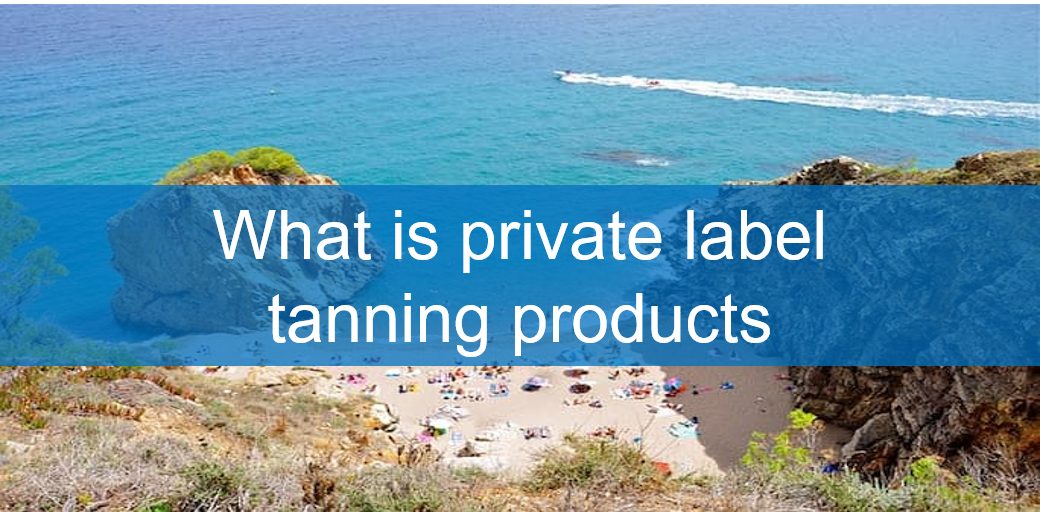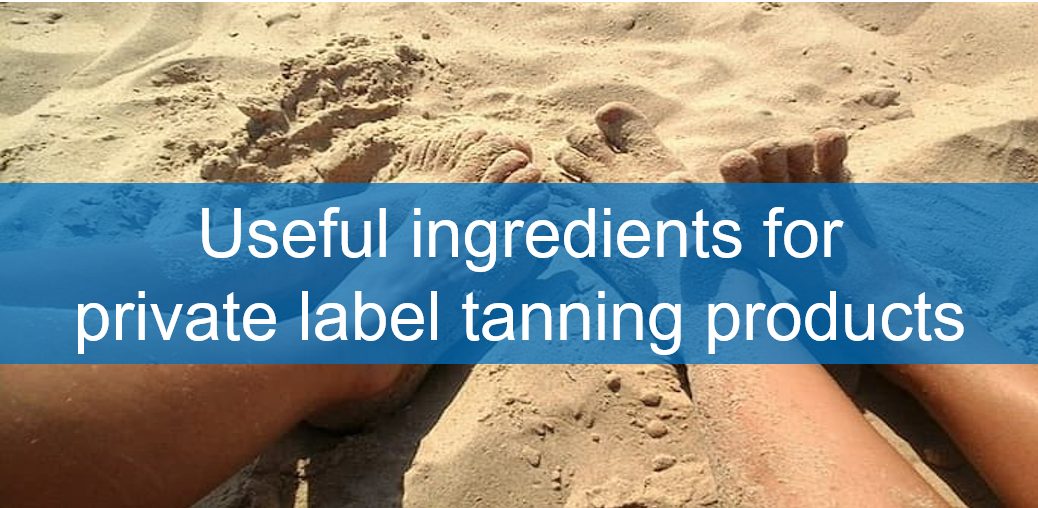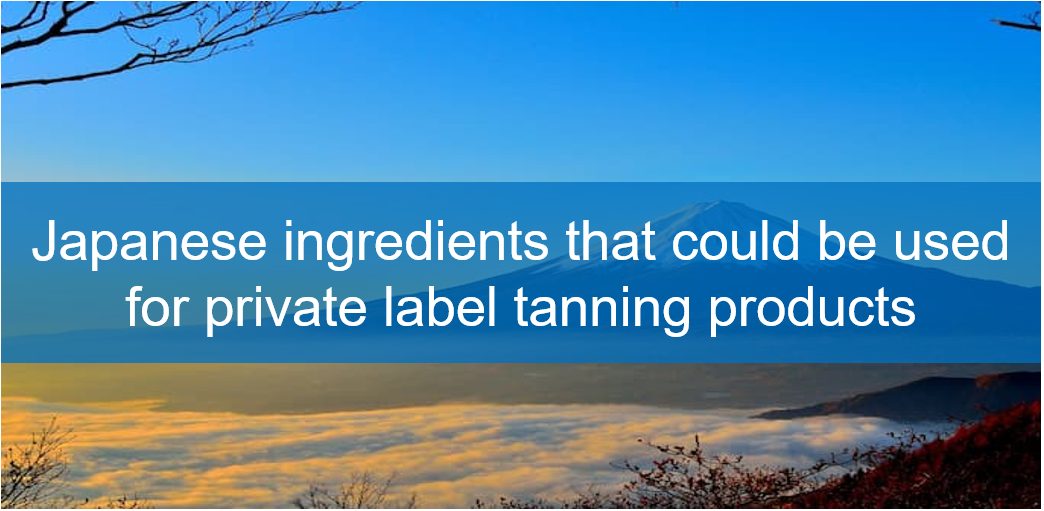
- HOME
- Cosmetic OEM Lab
I want to make private label tannig products
Is private label tanning products safe to use
I want to know some ingredients for private label tanning products
Lately, private label tanning products have been enjoying a surge in popularity. While a sun-kissed glow can impart a healthy appearance, prolonged exposure to the sun’s rays can lead to significant skin damage. Tanning products offer a solution, providing a safer alternative to achieve that coveted bronze complexion.
In this article, we’ll delve into the world of private label tanning products, exploring their safety, popularity, and efficacy. Additionally, we’ll offer insights into key ingredients to look for when choosing the right tanning product for you.
Let’s dive in!
Contents

What are tanning products anyway? Are they easy to use? How can I use them? Let me address all the questions you may have here.
Private label tanning products, also referred to as sunless tanning or fake tan products, involve applying them onto your skin. When you apply a self-tanning product containing DHA to your skin, the DHA interacts with the proteins in the outer layer of your skin, causing it to darken over a few hours. You can easily achieve a tanned appearance even if you do not go outside or to the beach.
The reaction that occurs after applying tanning products is non-toxic and safe, even safer than tanning outside. However, if you have certain allergies or sensitive skin, I recommend being extremely careful or conducting a patch test before use. This advice applies not only to these products but also to all others.
Tanning is harmful to your skin because excessive exposure can lead to skin cancer, dryness, redness, and other issues.
UV light consists of UVA, UVB, and UVC rays. You may have heard of UVA and UVB more frequently. UVA penetrates deeper into the skin, causing damage and contributing to skin aging. UVB rays are absorbed by the skin cells, leading to inflammation and redness. Both UVA and UVB exposure increase the risk of skin cancer.
UVC rays are less commonly mentioned because they are absorbed by the Earth’s atmosphere and do not reach us.

After explaining the details about private label tanning products, let me share some ingredient tips with you. Knowing these can make your items stand out!
The main ingredient for self-tanning is DHA (dihydroxyacetone). It is a ketotriose monosaccharide that reacts with the amino acids in the dead layer of the skin’s surface, giving you the sun-kissed glow.
Some self-tanning products contain erythrulose. This ingredient works quite similarly to DHA (dihydroxyacetone), but it develops the color more slowly. So, if you are looking to create a more casual, light finish for self-tanning products, using this ingredient can be a good option.
Some self-tanning products have both DHA (dihydroxyacetone) and erythrulose, so I think it’s good to decide your concept or target market before you decide which ingredients to use.
These have moisturizing effects and can protect your skin barrier, which is crucial because even if you put a lot of effort into moisturizing your skin, it will be ineffective if your skin barrier is weak. Since glycosphingolipids have protective abilities, they can also shield the skin from environmental factors such as low pH, destructive enzymes, UV rays, and more.
These are naturally occurring compounds that are combined with proteins and peptides, making them extremely important for human skin and body. There are 20 amino acids, which are divided into essential and non-essential amino acids. Essential amino acids (e.g., histidine, isoleucine, leucine, lysine, methionine, phenylalanine) cannot be synthesized by the human body and must be obtained through diet or supplements. Non-essential amino acids (e.g., alanine, arginine, asparagine, aspartic acid, cysteine) can be produced naturally in the human body, so it is not essential to obtain them through supplements.
This ingredient is derived from licorice, an herbal medicine, and is a water-soluble form of glycyrrhizic acid found in the rhizome of the licorice plant, which is a leguminous plant. This ingredient is also used as a medical ingredient in cold medicines, headache remedies, eye drops, etc.
It has anti-inflammatory and anti-allergic effects, making it beneficial for skin problems such as itchiness or acne. Additionally, there is scientifically approved information for its whitening effects. Due to its anti-inflammatory properties, it may also provide indirect prevention of hyperpigmentation.
One of the most popular ingredients, Vitamin C, can also be used in your self-tanning products. It has been reported to increase collagen production, improve blotches, and reduce wrinkles. Vitamin C synthesizes collagen in the skin and suppresses active oxygen that causes skin damage, consequently preventing rough skin. Additionally, it suppresses the formation of melanin pigment, aiding in the prevention of hyperpigmentation.
Even if self-tanning products are considered safe, including these ingredients is important for skin care and making your items stand out. Many more good, effective ingredients can be included in tanning products, so I believe it is wise to ask the OEM company to suggest some ingredients for your tanning products, as they have extensive information regarding formulations.

In the last section, let me share some Japanese ingredients that could be used in your self-tanning products. As a Japanese OEM company, we would like more people to discover the benefits of Japanese ingredients.
Green tea has strong antioxidant and bactericidal effects, which help prevent acne and other skin problems. The famous component in green tea is catechins, which provides numerous benefits for the skin.
Soybean also offers numerous benefits for the skin. It contains isoflavone, saponins, and amino acids, all of which are beneficial for the skin. These components provide moisturizing, whitening, and anti-aging effects.
This ingredient might not be as popular as others mentioned above, but in Japan, it is well grown in Okinawa prefecture and is familiar to us. Sugarcane extract has properties that provide skin moisturization, skin protection, and softening effects, making it a common ingredient in cosmetics. It also has anti-aging and anti-inflammatory effects.

In today’s article, I will explain what private label tanning products are and their usable ingredients. Compared to other items, self-tanning products can be a bit challenging when starting your business, but the demand for them is definitely increasing. I hope that by understanding the information above, it can help lead you to a successful business!
For further information, please contact us.